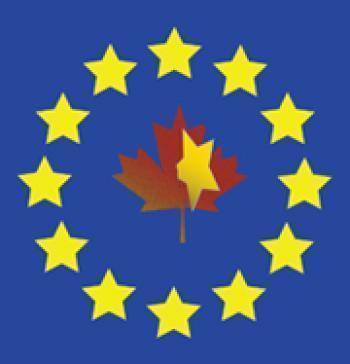There has been a flurry of developments on the Canada-European Union Comprehensive Economic and Trade Agreement (CETA) over the past four days.
On Saturday, the Globe and Mail noted the German newspaper Sueddeutsche Zeitung had reported German diplomats in Brussels saying CETA could not be signed “as it has been negotiated now.” That was backed up by a June 26 correspondence from German Deputy Economy Minister Stefan Kapferer who wrote, “The German government does not view as necessary stipulations on investor protection, including on arbitration cases between investors and the state with states that guarantee a resilient legal system and sufficient legal protection from independent national courts.”
The German government has clarified its position, noting investor-state need not be a deal-breaker, but still insisting it is a serious matter for them and that it will need to be addressed particularly in relation to the precedent it sets for TTIP, the U.S.-EU “free trade” agreement. Yesterday morning, a Globe and Mail article quotes the German ambassador to Canada Werner Wnendt. He says, “This is a very important but small part of a very comprehensive agreement which will benefit both sides. So this will certainly not bring the process to a halt. …People now understand there has been an agreement already negotiated with Canada that has this clause. So simply to say it’s fine with Canada but it’s probably not so fine with the United States would be very difficult.”
In an interesting twist, the Globe and Mail editorial yesterday morning states, “There are many who believe the best free trade deals have investor-state dispute settlement mechanisms built into them. Maybe. But there’s no question that free trade deals without them are still hugely economically positive, and that it’s possible to liberalize international trade without necessarily creating new, supra-national arrangements to protect cross-border investors. Japan and Australia recently concluded such a free trade deal.”
The Group of the Progressive Alliance of Socialists & Democrats hold 191 seats in the European Parliament. Their spokesperson for international trade David Martin says, “EU member states are about to initial the EU-Canada Comprehensive Economic Trade Agreement (CETA), which would be a positive agreement bringing opportunities for growth and jobs on both sides of the Atlantic. However, the agreement contains a controversial clause that allows multinational companies to bring international arbitration cases against governments — the so-called investor-state dispute settlement (ISDS). Our Group has always opposed the inclusion of this clause and we have expressed our opposition in a letter to EU Commissioner De Gucht.”
But it would seem the Harper government disagrees. The Financial Post reported this week that Canadian trade minister Ed Fast’s press secretary says, “Investment protections have long been a core element of trade policy in Canada and Europe, and will encourage job-creating investment and economic growth on both sides of the Atlantic.”
There are undoubtedly more twists and turns to come. There is already some speculation that the Canada-European Union summit scheduled for September 25 in Ottawa now may not include the signing of CETA. That would represent a further delay in the signing of CETA, still incomplete after it was signed “in principle” on October 18, 2013 in Brussels.
And even if it is signed by the Harper government and the European Commission this fall, it still must be ratified by the European Parliament (where there is significant opposition to the deal) and by the legislatures of all 28 member countries in the European Union (where it’s important to remember that France has also expressed opposition to investor-state being included in CETA). It has been estimated that this process will take about 18 months to conclude. That means at best about six months after the next federal election in Canada where CETA should face a vote in the House of Commons.
For now, a key task of ours will be to work with our European allies to defeat CETA. We will continue to highlight the investor-state challenges that could be faced by Europe. We will work with our European allies — John Hilary and Susan George among them — who have launched a European Citizens Initiative petition campaign against CETA. And we will continue to take the concerns of Canadians and Europeans to the European Parliament in Brussels and Strasbourg and to the legislatures most likely to veto CETA.




